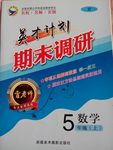题目内容
. Great ____have been made in the field of computer science in the past decades.
- A.progress
- B.breakthroughs
- C.mistakes
- D.assessments

 名师点拨卷系列答案
名师点拨卷系列答案 英才计划期末调研系列答案
英才计划期末调研系列答案My first most vivid and broad impression of the identity of things seems to me to have been gained on a memorable raw afternoon towards evening near my parents’ tomb in the churchyard.
“Hold your noise!” came a terrible voice, as a man started up from among the tombs at the side of the church. “Keep still, you little devil(小鬼), or I’ll cut your throat!”
A fearful man, all in coarse grey, with a great iron on his leg. A man with no hat, and with broken shoes, and with an old rag tied round his head. He seized me by the chin(下巴).
“Tell us your name!” said the man. “Quick!”
“Pip, sir.”
“Show us where you live,” said the man. “Point out the place!”
I pointed to where our village lay, on the flat in-shore among the alder-trees and pollards, a mile or more from the church.
The man, after looking at me for a moment, turned me upside down, and emptied my pockets. There was nothing in them but a piece of bread.
“You young dog,” said the man, licking his lips, “what fat cheeks you ha’ got. Darn me if I couldn’t eat em, and if I han’t half a mind to’t!”
I earnestly expressed my hope that he wouldn’t, and held tighter to the tombstone on which he had put me; partly, to keep myself upon it; partly, to keep myself from crying.
“Now then lookee here!” said the man. “Where’s your mother?”
“There, sir!” said I.
He started, made a short run, and stopped and looked over his shoulder.
“There, sir!” I timidly explained, pointed to the tombstone. “That’s my mother.”
“Oh!” said he, coming back. “And is that your father alonger your mother?”
“Yes, sir,” said I; “him too; late of this parish(教区).”
1. The “voice” in the second paragraph came from______.
A. the church B. the man C. the bank D. the boy
2.The boy probably lived _____.
A. in the parish B. in the valley C. in the city D. in the country
3.We can infer from the passage _____.
A. the boy was very calm and smart
B. the man hit the boy in the face
C. the boy would forever remember the raw afternoon
D. the man was very kind and considerate
4.The passage is most probably adapted from________.
A. a news report B. a science fiction C. a novel D. a review